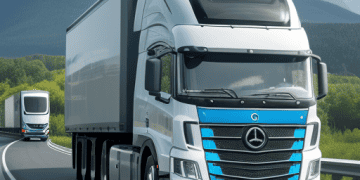In a recent meeting chaired by Italian Transport Minister Matteo Salvini, transport ministers from the Group of Seven (G-7) nations, along with European Union Transport Commissioner Adina Valean, addressed critical issues impacting global transportation. The meeting concluded with a comprehensive 67-point joint declaration that spans economic security, supply chain resilience, technological advancements, and environmental sustainability. The discussions were influenced by current global crises including Russia’s conflict with Ukraine and disturbances in the Red Sea by Houthis, both of which have significantly affected international trade routes.
The ministers condemned these disruptions and highlighted the resultant challenges to global connectivity. A key focus of the meeting was cybersecurity, which has become increasingly vital as the transport sector grows more reliant on new technologies. This concern is particularly acute given recent cyberattacks and the security vulnerabilities associated with Chinese electric vehicles, which are equipped with numerous connected sensors. The G-7 ministers also acknowledged the ongoing physical material risks in supply chains, emphasizing the need for enhanced standards and practices to ensure resilience. To this end, they established a working group dedicated to the resilience of transport supply chains, aiming to share best practices and strengthen cooperation in tackling transport disruptions.
Although China was not mentioned directly, its influence loomed large over the discussions. Concerns were raised about China’s dominance in raw materials, battery production, and the electric vehicle market, which the ministers identified as potential threats to Western economies. They expressed worries about non-market policies and practices that could lead to strategic dependencies and vulnerabilities, particularly in the auto sector. On the topic of sustainability, the meeting addressed the economic risks tied to reliance on Chinese materials and green technologies. The ministers called for a technology-neutral approach to the green transition, ensuring it is socially equitable, economically viable, and environmentally efficient. Salvini, who has previously criticized EU policies favoring electric vehicles, highlighted the importance of not favoring any single technology.
The G-7 nations reaffirmed their commitment to significantly reducing greenhouse gas emissions from all transport modes and emphasized the role of cooperation in developing low-emission vehicle infrastructure, alternative fuels, and sustainable public transport solutions. The ministers also recognized the importance of global coordination to address these issues, particularly through initiatives like the G-7’s PGII and the EU’s Global Gateway strategy. They noted the potential benefits of infrastructure certification schemes like the Blue Dot Network initiative and FAST-Infra to promote high-quality infrastructure and attract private investment in developing countries. Overall, the conference underscored the multifaceted challenges facing global transportation today, from securing supply chains against geopolitical risks to advancing sustainable and equitable technological solutions.
Stay current with supply chain report news at The Supply Chain Report. For international trade resources, visit ADAMftd.com.
#G7SummitNews #EconomicSecurityNews #SustainableTransport #GlobalTradeNews #Decarbonisation

















